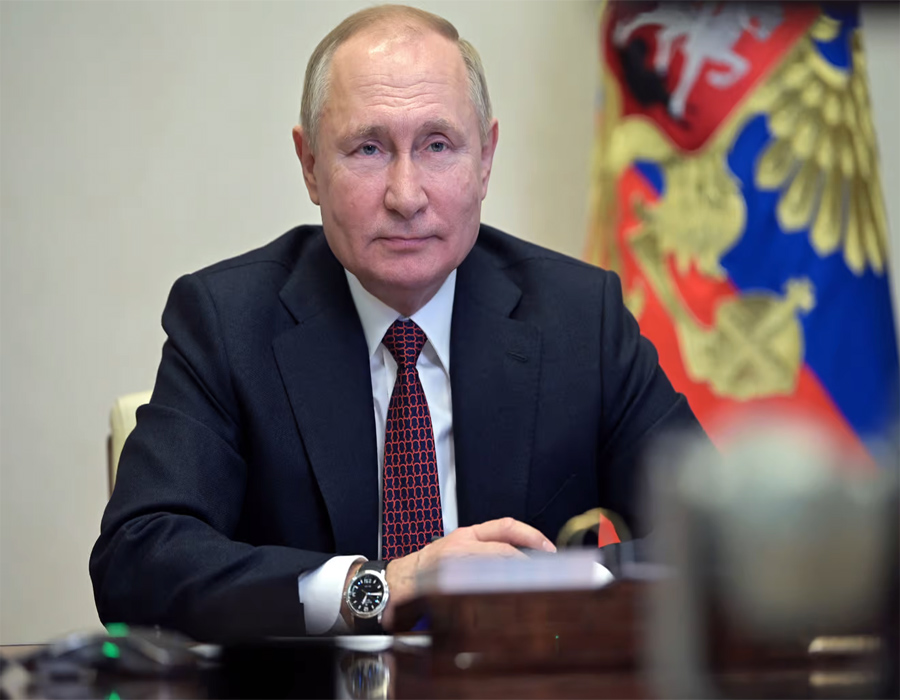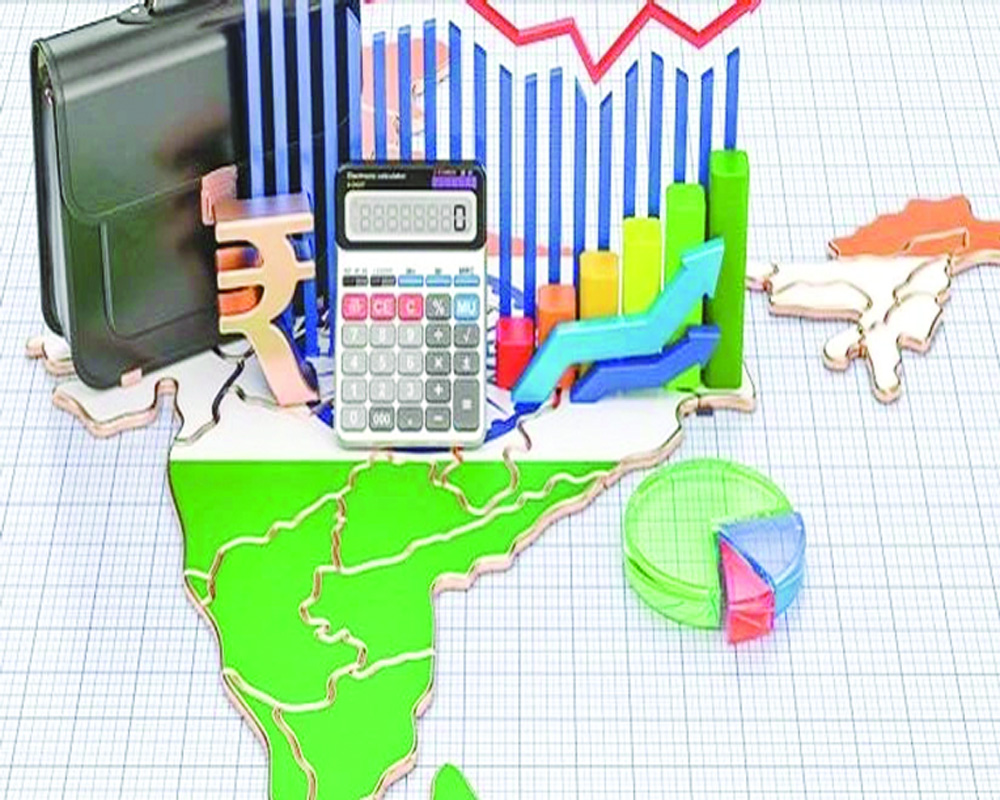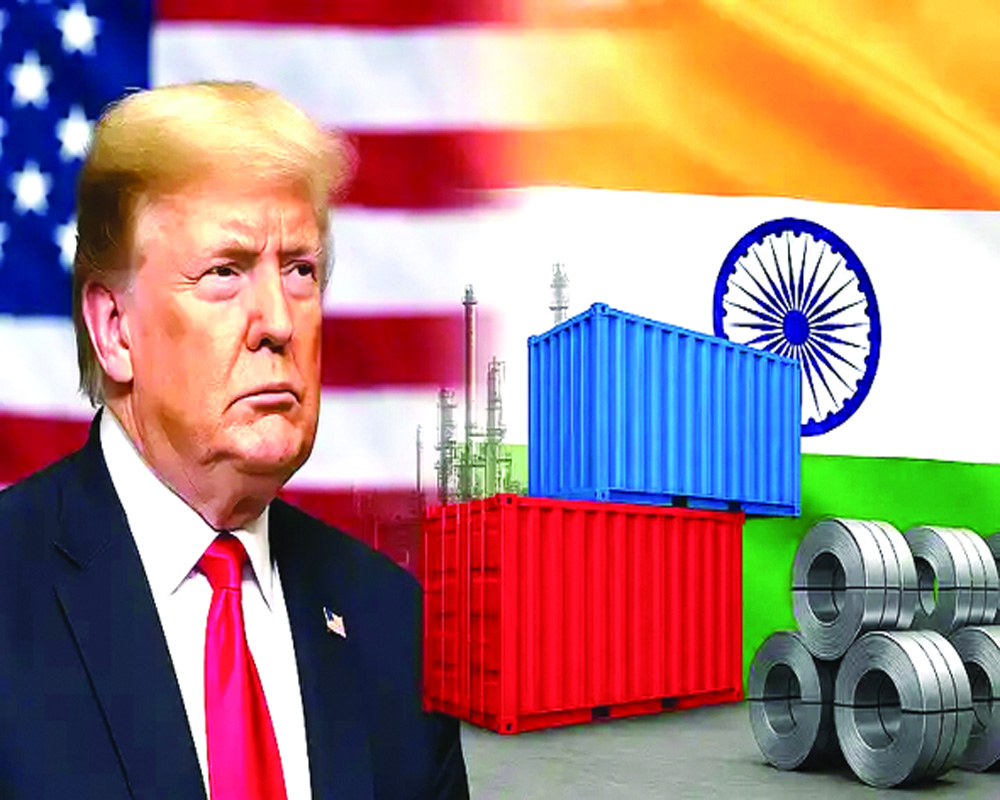Luxembourg's foreign minister said Friday that the 27-nation European Union was “very close to agreement” for asset freeze of Russian President Vladimir Putin and Foreign Minister Sergey Lavrov.
Jean Asselborn said before a meeting of EU foreign ministers to discuss Russian sanctions “I think we are very close to an agreement, that we will find an agreement here,” for sanctions on the two.
“There will be a discussion but I think we agree that Putin and Lavrov, as far as the freezing of assets is concerned, that we will find a consensus here,” he said.
EU leaders largely agreed it was too soon to impose a travel ban on Putin and Lavrov because negotiating channels needed to be kept open.
The world has made it clear that a military intervention in Ukraine is off the books, so most countries on Friday were throwing ever more punishment at Moscow — from financial to football sanctions — anything to force President Vladimir Putin to stop the brutal invasion of Russia's neighbour and unleash a major war in Europe.
Undeterred in the game of punitive sanctions, Russia started its own tit-for-tat measures, banning British flights to and over its territory in retaliation to a similar U.K. Ban on Aeroflot flights.
Yet with the Kremlin's eyes fully targeted on expanding the attacks on Ukraine, almost of the action was still going one way.
European Union leaders discussed until the early hours Friday any ways to hit Putin even harder than the two sets of sanctions that it already approved.
“We are hitting the regime at all levels and we are hitting it hardest,” Dutch Prime Minister Mark Rutte said early Friday.
The 27-nation bloc and other Western powers like the United States and the United Kingdom have agreed on a slew of sanction hitting everything from the banking sector to oil refineries and the defense sector.
EU foreign ministers will push the approval process further later in the day.
And just as Russia was making a pincer movement to choke Ukraine and its capital Kyiv, Western powers were implementing measures aimed at "asphyxiating Russia's economy,” in the words of French Foreign Minister Jean-Yves Le Drian.
Seeking to buttress its eastern flank, the NATO alliance was holding a virtual summit of government leaders, including US President Joe Biden, later Friday.
In terms unheard since the Cold War, threats were flying from all sides and ran through society.
In a sign of papal anger, Pope Francis went to the Russian Embassy himself to “express his concern about the war", the Vatican said. It was an extraordinary, hands-on gesture, since usually popes receive ambassadors and heads of state in the Vatican.
For Francis, the Vatican head of state, to leave the city state and travel a short distance to the Russian embassy to the Holy See was a sign of his displeasure.
The May 28 UEFA Champions League final, the Superbowl of European soccer, was stripped from St. Petersburg and replaced by Paris after the involvement of French President Emmanuel Macron. Formula One also dropped this season's Russian Grand Prix at Sochi in protest.
Action wasn't only limited to Western powers. Countries in Asia and the Pacific have joined the United States, the 27-nation European Union and others in the West in piling on punitive measures against Russian banks and leading companies.
The nations have also set up export controls aimed at starving Russia's industries and military of semiconductors and other high-tech products.
“Japan must clearly show its position that we will never tolerate any attempt to change the status quo by force,” Prime Minister Fumio Kishida told reporters Friday while announcing new punitive measures that included freezing the visas and assets of Russian groups, banks and individuals, and the suspension of shipments of semiconductors and other restricted goods to Russian military-linked organisations.
New Zealand Prime Minister Jacinda Ardern said “an unthinkable number of innocent lives could be lost because of Russia's decision,” and announced targeted travel bans against Russian officials and other measures.
Taiwan announced Friday that it would join in economic sanctions, although it did not specify what those would be. They could potentially be focused on export control of semiconductor chips, where Taiwan is the dominant producer.
While most nations in Asia rallied to support Ukraine, China has continued to denounce sanctions against Russia and blamed the United States and its allies for provoking Moscow.
Beijing, worried about US power in Asia, has increasingly aligned its foreign policy with Russia to challenge the West.
“Tthe Chinese government is following through on easing trade restrictions with Russia and that is simply unacceptable,” Australian Prime Minister Scott Morrison complained. “You don't go and throw a lifeline to Russia in the middle of a period when they're invading another country,” he added.
South Korean President Moon Jae-in said his nation will join international sanctions, but won't consider unilateral sanctions.
Indian Prime Minister Narendra Modi phoned Putin late Thursday and appealed for an “immediate cessation of violence,” his office said in a statement.
His permanent UN representative stopped short of either condemning Russia or acknowledging Ukraine's sovereignty.
The cautious statement reflects India's delicate position. It relies heavily on Russia, a historic partner, for military equipment but has sought to strengthen ties with the West over the years.
At the United Nations, officials set aside $20 million to boost UN humanitarian operations in Ukraine. Separately, the UN Security Council is expected to vote Friday on a resolution condemning Russia and demanding the immediate withdrawal of all its forces. Moscow, however, is certain to veto it.
The European Union Aviation Safety Agency extended to 200 nautical miles the airspace it considers risky, and warned of “the threat of missile launches to and from Ukraine.”
Protests by Ukrainians and their supporters were planned Friday across Asia and Europe. Public buildings, sports stadiums and landmarks in the Australia and Europe were illuminated in Ukraine's national colours of blue and yellow.
Courtesy: PTI








 OpinionExpress.In
OpinionExpress.In















Comments (0)